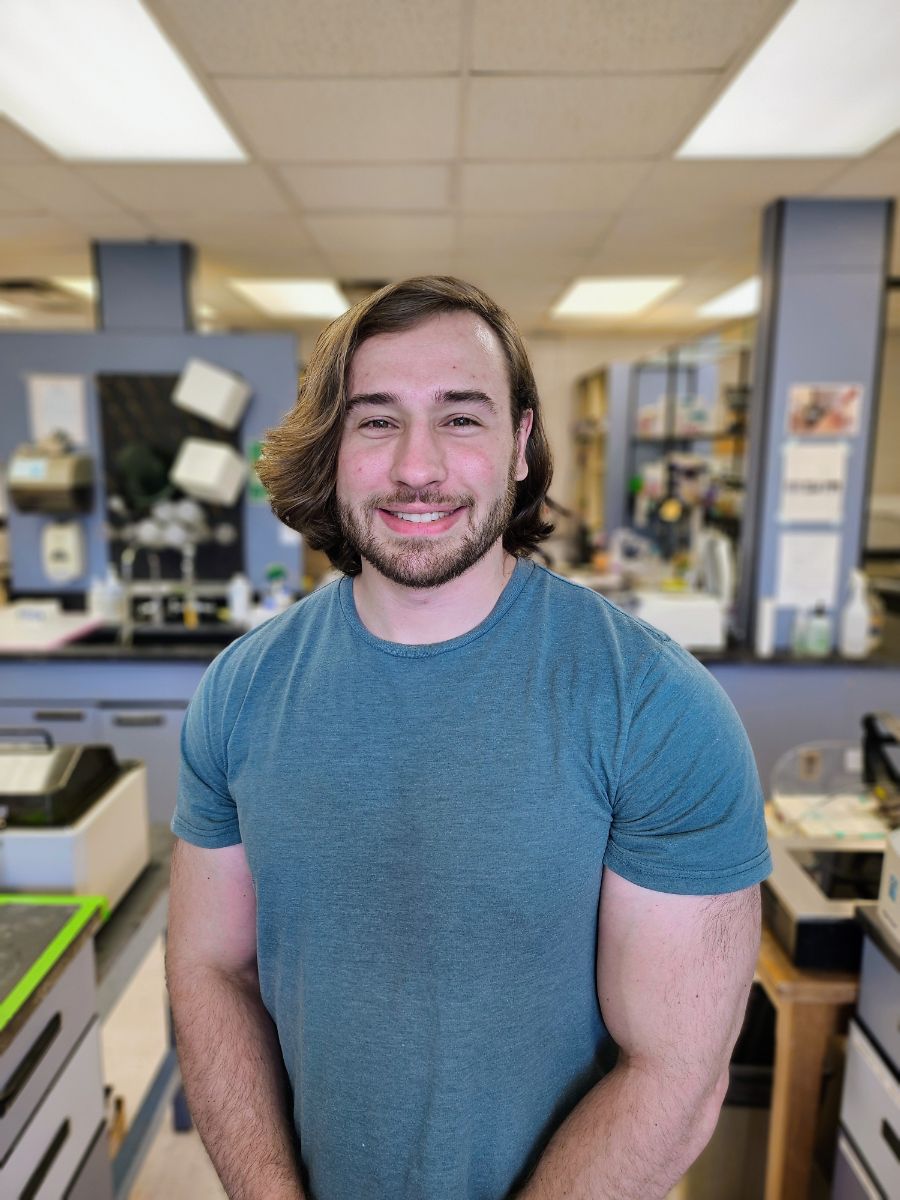Zach Celentano, a first year student in the van Kessel Lab, has been awarded a QCB Fellowship which will support him during his second and third years. See below to read what Zach is working on:
"I work in the van Kessel in Biology studying bacterial quorum sensing in Vibrios. My projects focus on generating structural data of the master quorum sensing regulator, SmcR, in Vibrio vulnificus bound to our small molecule inhibitors. This species of bacteria is known to cause severe food poisoning and necrotizing fasciitis (which involves the breaking down living flesh). I hope to utilize this data to create more potent inhibitors with a structure-based drug design approach and further validation of potent inhibitors with structure-activity relationship assays such as bioluminescence reporter assays. These inhibitors have been shown to cause degradation of SmcR in vivo by a paper from our lab that is currently in review. I am planning on utilizing a GFP fusion of SmcR that I have made to probe for the existence of a putative degron in SmcR that is exposed upon inhibitor binding, leading to inhibitor mediated degradation."
Congratulations Zach!

 The College of Arts
The College of Arts